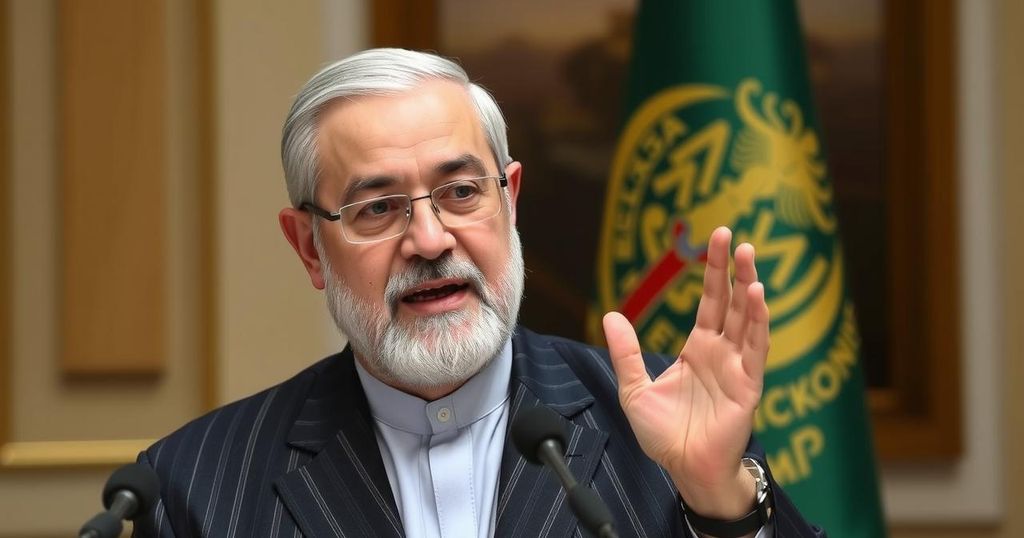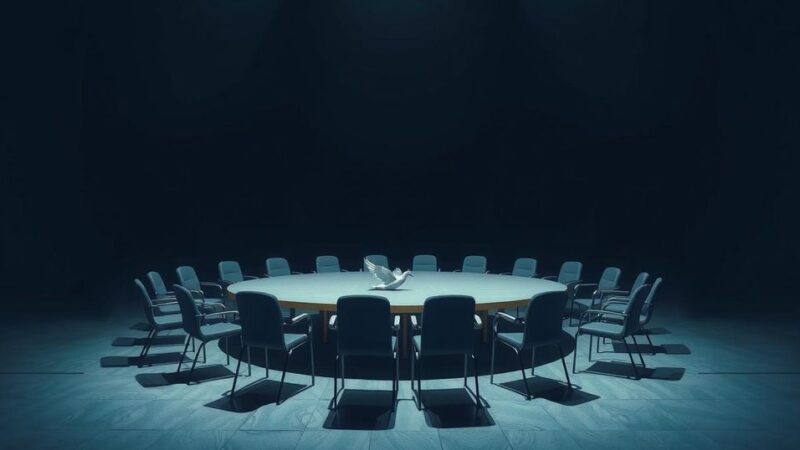Iran’s Foreign Minister Abbas Araghchi announced that European powers appear serious about reviving nuclear talks following discussions in Geneva. Engaging with the E3 nations, the officials described the meetings as constructive, yet uncertainties remain regarding the U.S. approach under the incoming administration, as both sides seek a negotiated resolution.
Iranian Foreign Minister Abbas Araghchi indicated on Tuesday that European nations seem genuinely interested in rejuvenating discussions concerning the nuclear negotiations following recent dialogues in Geneva. In a state television interview, Mr. Araghchi expressed that these engagements with the trio of European powers are designed to facilitate a path back to the talks. He noted that the discussions were encouraging and highlighted the European parties’ commitment to reaching a negotiated resolution. However, he remained uncertain about the intentions of the incoming U.S. administration regarding their participation in these negotiations.
The Iranian delegation engaged in talks with representatives from the United Kingdom, France, and Germany—collectively referred to as the E3—over two days. These discussions have been described by both sides as “frank and constructive.” They occurred against the backdrop of President-elect Donald Trump’s impending inauguration, who previously advocated for a stringent sanctions policy against Iran during his first term. Iranian Deputy Foreign Minister Kazem Gharibabadi emphasized that the talks encompassed discussions about lifting sanctions and other critical matters.
On the same day, European Union diplomat Enrique Mora characterized his meeting with Iranian officials as constructive while exploring diplomatic solutions to the nuclear dilemma. This round of negotiations marks the second engagement within less than two months, following a prior meeting held in Geneva in November. In 2015, an agreement was established between Iran and world powers—including Britain, France, and Germany—to ease sanctions on Tehran in exchange for limitations on its nuclear initiatives. Nonetheless, the U.S. exited the accord in 2018, reinstating stringent economic sanctions, which prompted Iran to gradually diminish its compliance with the agreement.
The discussions surrounding Iran’s nuclear program have been a focal point in international relations, particularly since the signing of the Joint Comprehensive Plan of Action (JCPOA) in 2015. This agreement was initially designed to limit Iran’s nuclear capabilities in exchange for relief from sanctions imposed by the international community. The U.S. withdrawal from the agreement in 2018 under President Trump’s administration and the subsequent re-imposition of sanctions have led to significant tensions. Consequently, Iran has indicated a readiness to return to negotiations while expressing concerns about sanctions and compliance from the other parties involved. The involvement of European powers, particularly the E3 nations, highlights their continued commitment to resolving this issue diplomatically, despite the complex geopolitical landscape.
In conclusion, recent dialogues between Iran and European powers indicate a renewed commitment to resuming nuclear negotiations. While Iranian officials express optimism about these talks, uncertainties remain regarding the U.S. government’s stance under President-elect Donald Trump. The outcome of these discussions will be pivotal in dictating the future of Iran’s nuclear program and the broader relationship between Iran and the international community. Continued engagement and a focus on diplomatic solutions will be essential in navigating this intricate issue.
Original Source: www.barrons.com






